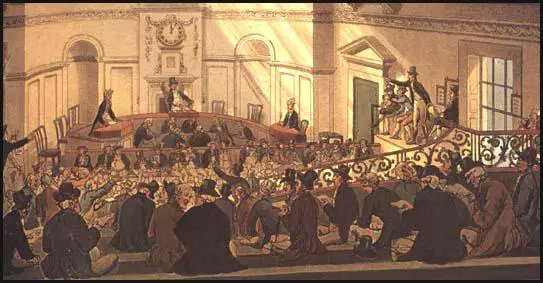East India Docks
The East India Company was established in 1600 to challenge the Dutch-Portuguese monopoly of the spice trade. Queen Elizabeth granted the company monopoly rights to bring goods from India. With the approval of local Indian rulers, the East India Company established trading posts in Madras, Bombay and Calcutta. The company was now trading in cottons, silks, indigo, saltpeter and tea.
The East India Company had a monopoly of this trade until 1694 when the House of Commons passed an act that enabled all British firms to trade with India. The East India Company retained its dominant position and continued to make large profits from India and by 1720, 15% of Britain's imports came from India.
The international headquarters for the company was established at East India House in Leadenhall Street. James Mill and his son, John Stuart Mill, both worked for the company and eventually both became head of the office at East India House.
The British government became concerned with the power of the East India Company and in 1783 Charles Fox attempted to persuade Parliament to pass a bill that would replace the company's directors with a board of commissioners. George III made it known to the House of Lords that he would consider anyone voting with the Bill an enemy.
The following year, the new Prime Minister, William Pitt convinced George III and Parliament to accept a new India Bill. This measure created a new Board of Trade and helped to transfer the political, financial and military power of the East India Company to the British government. The East India Company now found it difficult to make a profit from its activities and in 1834 ceased trading and instead acted as a managing agency for the government. The company finally came to an end in 1873 and Lloyds took over East India House.

Primary Sources
(1) William Pyne, The Microcosm of London (1808)
On the 1st March, 1801, the debts of the East India Company amounted to £5,393,989 their effects to £15,404,736 and their sales increased since February 1793, from £4,988,300 to £7,602,041. The person employed in the home establishment of this important company exceed 3,670.
